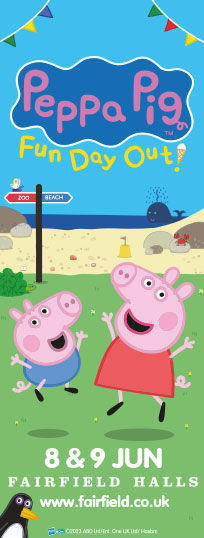The death of Her Majesty the Queen has meant many more children are talking about and asking questions about death. Many people worry about saying the wrong thing or saying too much and it can feel like you don’t know what is the right way to handle these conversations.
The first thing to remember is that children will always be affected by grief if it’s happening around them, whether that's grief for The Queen or because of other illness or bereavement in the family. Their understanding will change depending on age, but the following advice may help if you need to talk to a child about someone dying, whether or not it's someone they knew.
Tell them what has happened
It’s important to start by telling them what has happened as clearly as possible. Let them talk and ask questions. Ask what they know – they may be getting information which is incorrect or distorted from friends or social media. With a younger child you may need to give information in small chunks. It’s really important to remember that talking about the situation and about the possibility of death and dying is an ongoing conversation.
When telling a young child that a close relative has died it’s important to avoid using metaphors like, ‘They’ve gone to sleep’ or, ‘Gone to live with Grandpa’, while many adults do say these things they can be very confusing for a young child to understand.
If you are very distressed yourself and aren’t ready to answer all their questions, it might help to find a friend or family member to who can spend some time with them and talk them through it.
Reassure them
When a child starts to understand death naturally they may start to worry about others around them dying. Don't give false promises, but let them know they are loved and supported and that whatever happens someone will be there to look after them.
It’s also important not to expect too much of them. Older children are sometimes expected to ‘step up’ and be a support to a parent or to younger siblings. Sometimes well-meaning friends and relatives say things like ‘you’re the man of the house now’ even to quite young children. You may need to all pull together as a family, but remember their age and abilities. They are still children.
It’s OK to let them see that you’re sad too
Children will pick up on your feelings so it's better to be honest about how you are feeling where it's appropriate. If you try to hide how you feel, a child might also feel like they aren’t able to talk and might suppress their feelings, which isn’t healthy.
Give them space
After telling a child about a bereavement, such as the Queen’s, it’s important to give them time to talk about it, but they will also need time to play and take part in normal activities. Children can’t sustain emotional pain in the way that adults can and tend to move in and out of grief quite quickly. Don’t worry or be shocked if your child doesn’t look like they’ve been affected by the death of a close relative. Its part of a child’s grieving process.
Older children and teenagers might need time with their own friends. Again carrying on with normal activities doesn’t mean they don’t care, it will take time for them to process their grief in their own way.
Let them join in with funerals and memorials
Whether it's watching the Queen's funeral, or going to the funeral of their own relative, our advice is to be led by the child or young person. Funerals and memorials can be a way for children to help process their feelings and understand the finality of what's happened. They can also be a time for sharing memories and children can be part of that, if they want to.
Children often find creative ways of expressing grief helpful. You could encourage them to write their feelings down in a poem, diary or in a letter to the relative who’s died. Or some might prefer to paint, draw or build a model to express their feelings and show how much the person who’s died meant to them.
Creating a memory box can also be a lovely way to remember all the happy times they spent with the person who’s died. You can put in it anything that reminds you of the person, as well as pictures, letters and stories. This also works when it is someone they have never met, like the Queen.
Grief is unique to everyone especially children. You can find out more about what children and young people understand at different ages, and how to help them on our website cruse.org.uk/children




